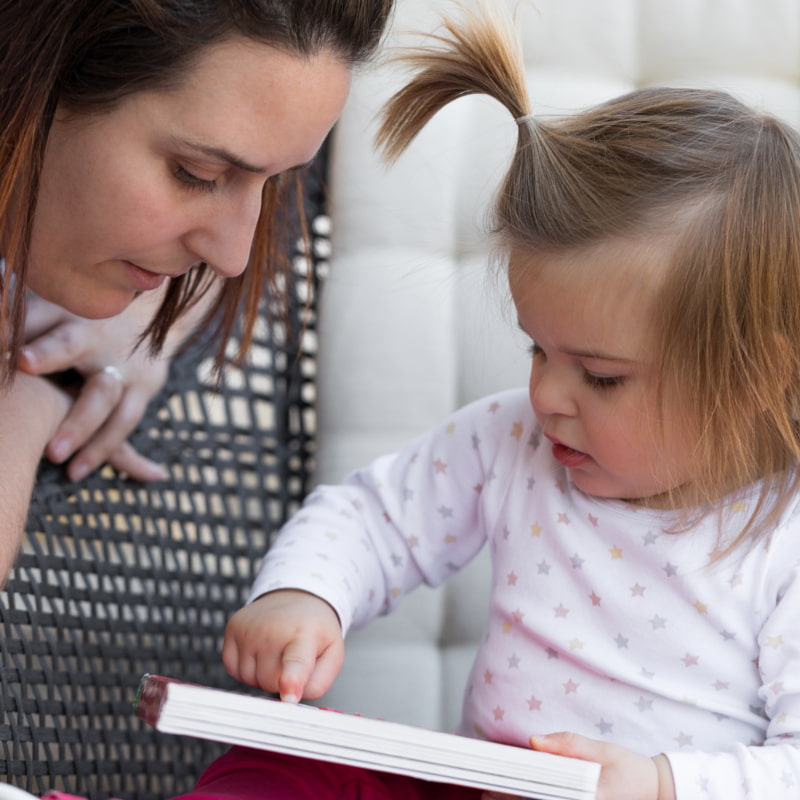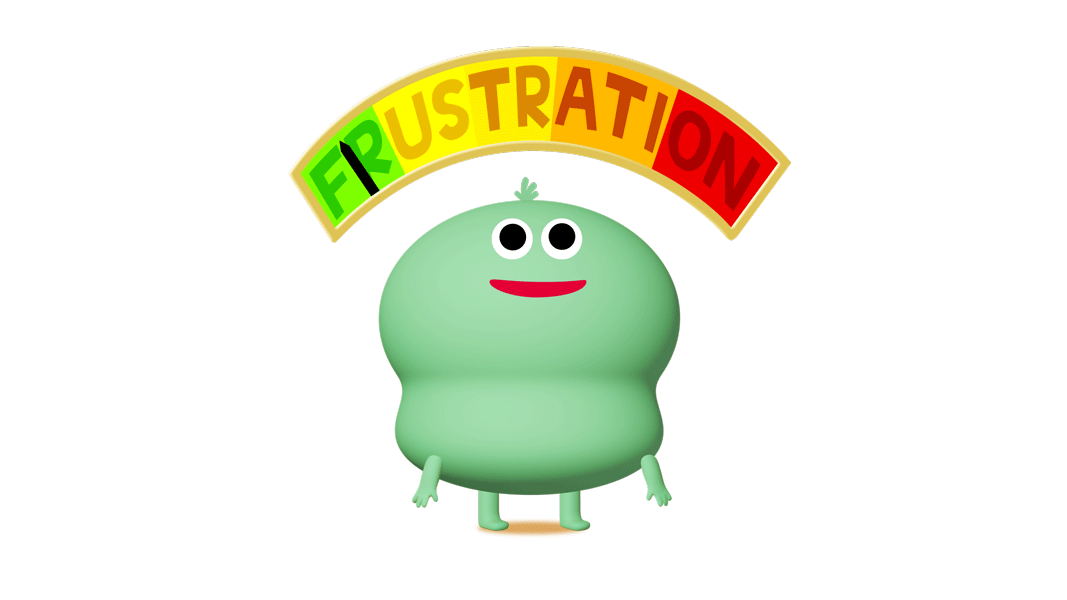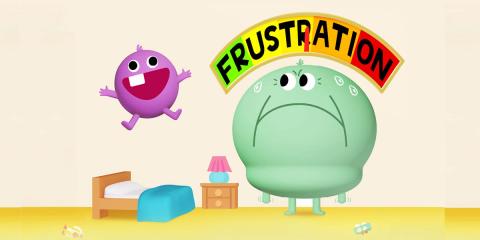Having more than one child is a different thing entirely, and brings challenges all of its own. If your kids are bickering, try not to be too upset. It’s normal for brothers and sisters to fight and it’s one of the ways they learn to share, take turns and get on with other people. But if you’re looking for ways to create a bit more peace in the household, we have some tried and tested tips from other parents to help you give them the attention they need.
Tips for managing brothers and sisters
Tip #1: You're doing great together
Sometimes we're too quick to pick on those moments when brothers and sisters are not getting on. Let them know how pleased you are when they're good to one another. A few positive words can mean everything to your children.
Tip #3: Talk it up
There are lots of emotions that your wee one needs to get to grips with when it comes to sharing. If one child has a toy and won't give it up, you need them to understand how that might make the other child feel. "Josie loves her teddy, and she really wants to hug him at the moment." That can help to loosen a 'death grip' they have on teddy! Give your child plenty of praise when they do.
Tip #4: Practise taking turns
Try turning one page of your child's bedtime book, and they turn the next. Then your older child turns the next one. Do the same with stacking blocks or putting puzzle pieces together.
Tip #5: Private space
Try to give each of your children their own private place to keep their things. If you haven't got separate bedrooms, let them have a drawer, corner of the room or a box for their things. Help them put their name on it so they know it's theirs.
Tip #6: Give them one-to-one time

If you can, try to spend time alone with each of your children. It could be at bedtime, or when an older one is at school, or a younger one is with granny for an hour or so. If they’re a bit older, you could ask them what they’d like to do with you for this time. It doesn’t need to be something you have to spend money on, or be complicated. Even reading with them for 15 minutes or doing some drawing together is a perfect chance to chat to them and make them feel special.
Tip #7: Be fair
When you’re feeling annoyed or frustrated with them, try not to compare your children or hold one of them up as an example. ‘Why can’t you be more like your brother/sister?’ is a tough thing to say to any child.
Tip #8: Put a stop to violence
If they’re trying to physically hurt each other, make it as clear as possible that you won’t put up with punching, kicking, biting and so on. When things get ugly, separate your kids as calmly as you can and get them to spend time in separate rooms to calm down.
Tip #9: Keep your cool
Try to stay calm. Don’t give your kids unnecessary attention for bad behaviour – they’ll continue to act up if you do. Focus on the good behaviour of the others and give them your attention.
Tip #10: Make expectations clear
Let your kids know that while you don’t expect them to be best pals the whole time, you do expect them to respect each other’s differences. Help them to understand that it’s better to share and talk things through rather than fight!
Fun games for brothers and sisters to play together
Tip #1: Fun for all
Find fun activities that can appeal to all your children, such as exploring outdoors, building a den or a scavenger hunt. Can they find 5 different kinds of leaves? You can make it a little harder for older children. Warmer, warmer, roasting!
Tip #2: Construction sets
Construction sets can be a fun way to play with all your kids together. You could ask your child to tell you what they'd like you to help them build and chat about their ideas for building it.
Tip #3: Make a band
Keep the kids busy before dinner by seeing if they want to make a "band". Give them some pots and pans and ask if they can come up with a song.
Your child’s development: This helps your wee one learn rhythm – which actually helps 'pre-reading' skills. There's a lot of learning in that pot banging!
Tip #4: Modelling clay
Kids of different ages can enjoy creating different things with play dough. It’s a nice way to keep them entertained when you’re making tea as you can get them all round the kitchen table and chat to them about what they’re doing. And if you get 5 minutes, you can ask each of them what artistic masterpiece they’d like you to make for them from the dough!
Tip #5: Artist’s studio
Children of different ages can all enjoy some creative time together. Give them some paper and crayons or pencils, and ask them each to create a 'menu' for dinner, or a picture of their favourite day – or just whatever they feel like! It’s another good way to keep them all busy at the table while you’re trying to cook, and you can chat to them about what they’re drawing.
Tip #6: Build a den

Whether it's using a blanket and some chairs, or a duvet over the bottom bunk bed, why not challenge your kids to make a den together? Then they can fill it with what they’ll ‘need’ for their adventure into the Arctic or jungle.
Tip #7: Board games
There are loads of great board games designed especially for younger kids, and you can pick them up for a pound or two in a local charity shop. They’re great for teaching your little ones about taking turns, winning and losing, and are something you can all play together.
Being a parent is the best job in the world, but it can also be one of the most stressful. There will be days when it all feels a little too much. To help you manage the challenges ahead, Parent Club has some tips on coping with being a parent and keeping calm with your wee one so you can build a rewarding relationship together.

 Activities & Play
Activities & Play Behaviour
Behaviour Childcare
Childcare Development & Growing Up
Development & Growing Up Family, Friends & Relationships
Family, Friends & Relationships Feeding Your Baby
Feeding Your Baby Food & Eating
Food & Eating Health & Safety
Health & Safety Mental Health & Wellbeing
Mental Health & Wellbeing Money & Work
Money & Work Online Behaviour & Safety
Online Behaviour & Safety Pregnancy & First Days
Pregnancy & First Days School & Education
School & Education Sleep
Sleep








 Mental Health & Wellbeing
Mental Health & Wellbeing
 Sleep
Sleep